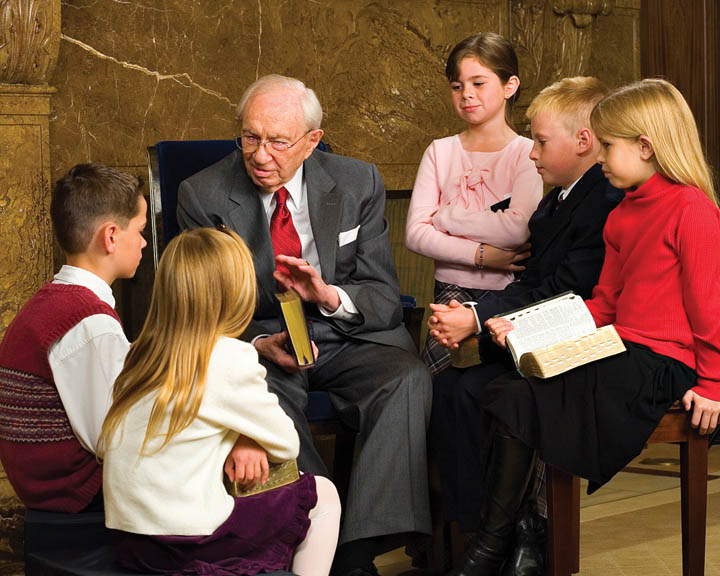John’s Concern
 Two days before John was to return to his military assignment, a construction crew began digging a large hole in the empty lot north of his home. By the end of the day, a fifteen-foot hole lay ready for cement forms to be placed. Within minutes after the crew left, neighborhood children swarmed on the “diggings.” Teenagers were running, and smaller children were climbing, as well as some preschool boys playing with a toy wheelbarrow. Among those preschool boys was John’s four-year-old son, Jason. The boys were trying to dump a little gravel from the wheelbarrow into the large hole, but the earth beneath their feet was crumbling. Seeing this, John raced out on his balcony and yelled, “Get off that lot, you kids! What do you think you are doing?” The children all scattered, and John went down to bring the little ones away from the hole and into his backyard.
Two days before John was to return to his military assignment, a construction crew began digging a large hole in the empty lot north of his home. By the end of the day, a fifteen-foot hole lay ready for cement forms to be placed. Within minutes after the crew left, neighborhood children swarmed on the “diggings.” Teenagers were running, and smaller children were climbing, as well as some preschool boys playing with a toy wheelbarrow. Among those preschool boys was John’s four-year-old son, Jason. The boys were trying to dump a little gravel from the wheelbarrow into the large hole, but the earth beneath their feet was crumbling. Seeing this, John raced out on his balcony and yelled, “Get off that lot, you kids! What do you think you are doing?” The children all scattered, and John went down to bring the little ones away from the hole and into his backyard.
Within minutes after he returned to his house, John saw all the children swarming over the lot and dirt pile again. His little boy’s friends were there. “My yelling didn’t do any good,” thought John. “Maybe I could reason with them so they see that playing there is dangerous.” John walked outside and beckoned to the older children on the dirt pile. Some of the older ones hesitated, but John encouraged them with a wave of his hand. “Listen,” he said. “I was kind of nutty to yell at all of you a minute ago. I guess in one way it is none of my business where you kids play. But my concern is that the little ones see you over here and they come over. If you fall, maybe you will break an arm or get bruised, but I’m worried about what might happen to the little ones if they fall. What happens if a lot of that dirt caves in on them? If you play on the hills, they play on the hills. Can you see a way we can work together to protect them?”
- What is the difference between John’s first approach and his second?
- What was he teaching?
What do you predict the teenagers’ response will be?The result was that the teenagers policed the lot to keep the little children away, and even avoided the construction site themselves.
Parents should follow John’s second example. Do you reason with your children? Or do you command them? Read the comparisons to help you decide whether your children understand why they should be obedient, or if they are only learning that you yell louder than they do.
| Reasoning | Commands and Demands |
| 1. Are you teaching a principle? | 1. Are you giving orders? |
| 2. Are you reasoning sensibly and calmly? | 2. Are you blaming and accusing? |
| 3. Are you exploring consequences? | 3. Are you making decisions impulsively and without discussion? |
| 4. Are you finding wise alternatives? | 4. Are you allowing only one possibility? |
| 5. Are you sharing necessary information? | 5. Are you demanding blind obedience? |
| 6. Are you listening? | 6. Are you doing all the talking? |
Mormons believe in the importance of gentle persuasion, long-suffering, and unfeigned love (see Doctrine and Covenants 121:41-46).
